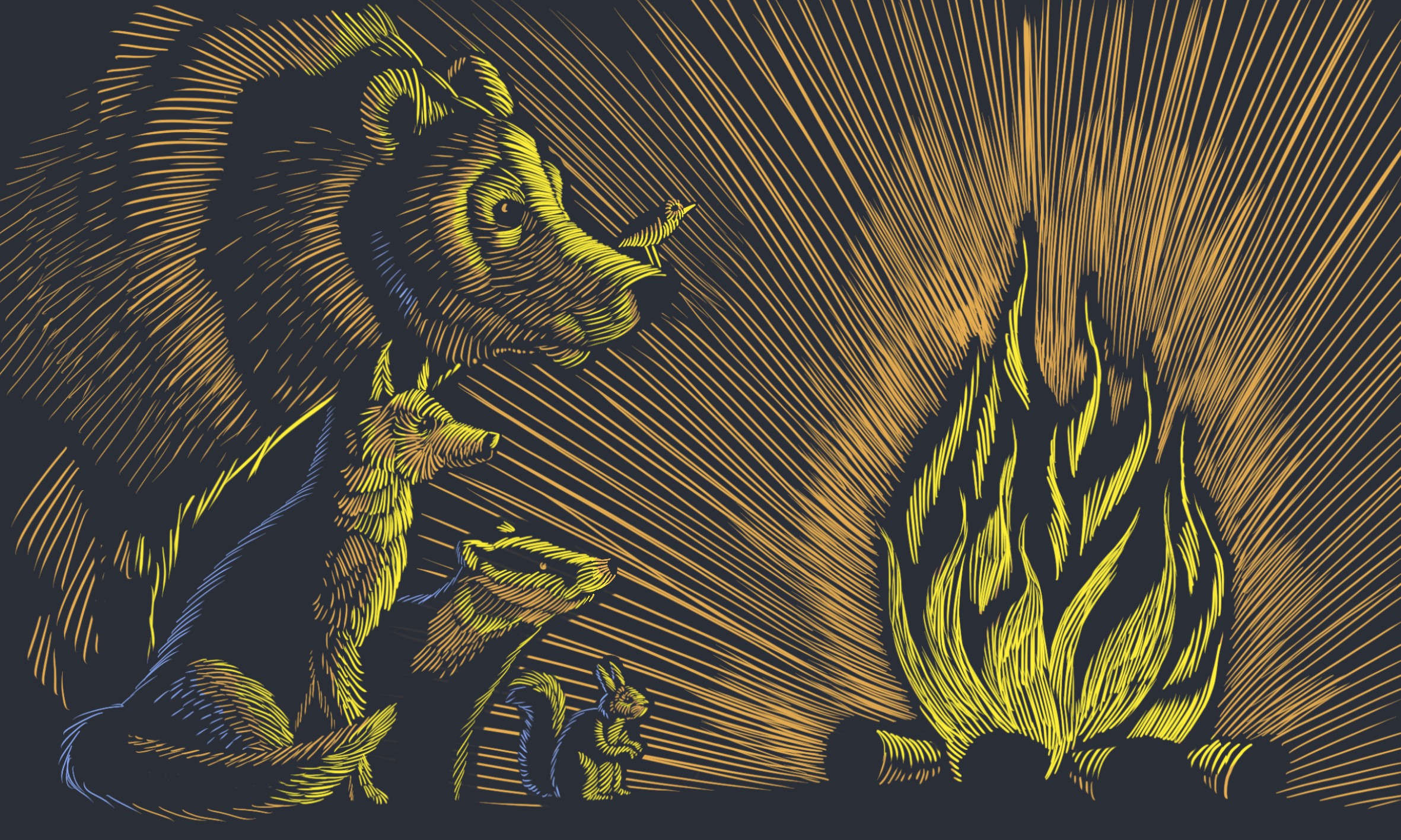It was not an easy choice to focus our crowdfunding campaign on care and maintenance as the condition sine qua non to consider it successful.
Some may dismiss a maintenance‑focused campaign as unambitious or uninteresting, if they don't see the stretch goals beyond it. Others may just not be hooked on backing a project that cares (pun intended) so much about maintenance, as Erin Kissane beautifully put it in her recent essay:
Bonfire also, to my absolute delight, foregrounds maintenance—the thing no institutional funder ever wants to help with, because the incentives are for the innovative and new, not the stable and thriving
Care work is unsexy. It doesn’t open wallets or drive clicks. So why put care as the foundation, and how does it shape what and how we build?
First, let's clarify what "care" means to us. We go by the definition elaborated by Joan Tronto and Berenice Fisher in Toward a feminist theory of caring, discovered while reading the PirateCare syllabus several years ago, shared with us by our friend Maddalena Fragnito:
In the most general sense, care is a species activity that includes everything we do to maintain, continue and repair our world so that we may live in it as well as possible. That world includes our bodies, ourselves and our environment, all of which we seek to interweave in a complex, life-sustaining web.
Almost all open source software goes through that, because care is first of all about nurturing relationships:
To care about something, or for somebody, is inevitably to create relation. Caring is more than an affective-ethical state: it involves material engagement in labours to sustain interdependent worlds, labours that are often associated with exploitation and domination.
- Maria Puig de La Bellacasa, 2012. Nothing comes without its world: Thinking with care
Valuing unglamorous labour #
Maintaining, continuing and repairing are care work. They’re foundational to any open‑source project. Maintenance is the unglamorous work that keeps people safe, tools usable, and the commons alive.
Day to day, that looks like fixing bugs and security issues, keeping things reliable and performant, documenting how to use and deploy, adding settings people ask for, translating the interface, and making it accessible on slow connections and phones. It’s unglamorous, often invisible, but it’s what builds reliability, equity, and trust.
But caring in open‑source software is also about maintaining relationship and communication: documentation and guides, replying to questions, and being accountable to the community that is using or wants to use your tools: community support; managing translations and localisation; troubleshooting; moderation for project spaces; attending calls and events; onboarding help... did we say troubleshooting?
Mutual aid over burnout #
However, care isn’t just outwards facing, it's how we hold eachother up. If life intervenes (with illness, caregiving, burnout, financial stress, etc.) we don't apply pressure; we offer solidarity. As much as possible, the rest of us stretch so others don't have to vanish or push through pain. We redistribute tasks, slow a release, pool funds, and amplify their other work. People first, with tempo and budgets set by real lives. That's how the commons stays alive: not just through resilient code but through resilient relationships.
This relational care extends in collaborations with people involved in flavours such as the Open Science Network, family and friends, and allied communities or projects. It takes a village to keep the commons alive and healthy beyond any "core team".
How care shapes the system #
We also apply care at the root of our technical and governance infrastructure. We want our software to be community‑driven in terms of what features are prioritised, which are excluded, how features are designed, how defaults are decided, and how communities should not be bottlenecked by previous decisions about how things are supposed to work for them.
We believe in many interconnected worlds, not one platform. Communities should set their own rules and still connect. That’s why we create everything as remixable building blocks and release code under the open source AGPL licence and refuse ads or VC incentives that drive enshittification.
In short, we prioritise care over novelty and speed. We listen first, do user research, and design for consent and harm reduction. Ethics and real needs guide what we build and how we ship.
Tools for organising and care #
We've now released the Bonfire Social flavour and are actively working on the Open Science Network, in cooperation with a group of scientists and researchers.
Once we have care covered, we'll feel ready to commit to building exciting and critical features together with an awesome list of communities and partners, to transform how social networks can empower communities for the better: free from billionaires, VCs, and benevolent dictators.
The crowdfunding stretch goals include tools such as for groups, events, collective decision‑making, cross‑instance moderation tooling, mutual aid networks, living memory archives, etc., to move beyond social media (broadcasting content to an audience) and extend the social graph to community organising, blurring the lines between local communities and digital spaces.
Infrastructure for the long haul #
With the Co‑op Hosting stretch goal (in cooperation with Co-op Cloud) we want to build a network of care to offer an infrastructure that is accessible and trustworthy to non‑technical communities across the whole software lifecycle, providing sustainability for all partners and teams involved. Shared sustainability means funding infrastructure, ongoing maintenance and contributor care, not just new features.
Back the care work #
Our crowdfunding campaign is radically ambitious specifically because we put care as the precondition to research and development.
At the time of writing we’re 74% of the way towards the care and maintenance goal. Please help us cross the last mile to our first goal.
If you can't contribute funds, please share the campaign on different channels, introduce us to people who could help (such as journalists or pilot communities) or contribute feedback or translations, all equally part of building (and maintaining!) the commons together.


